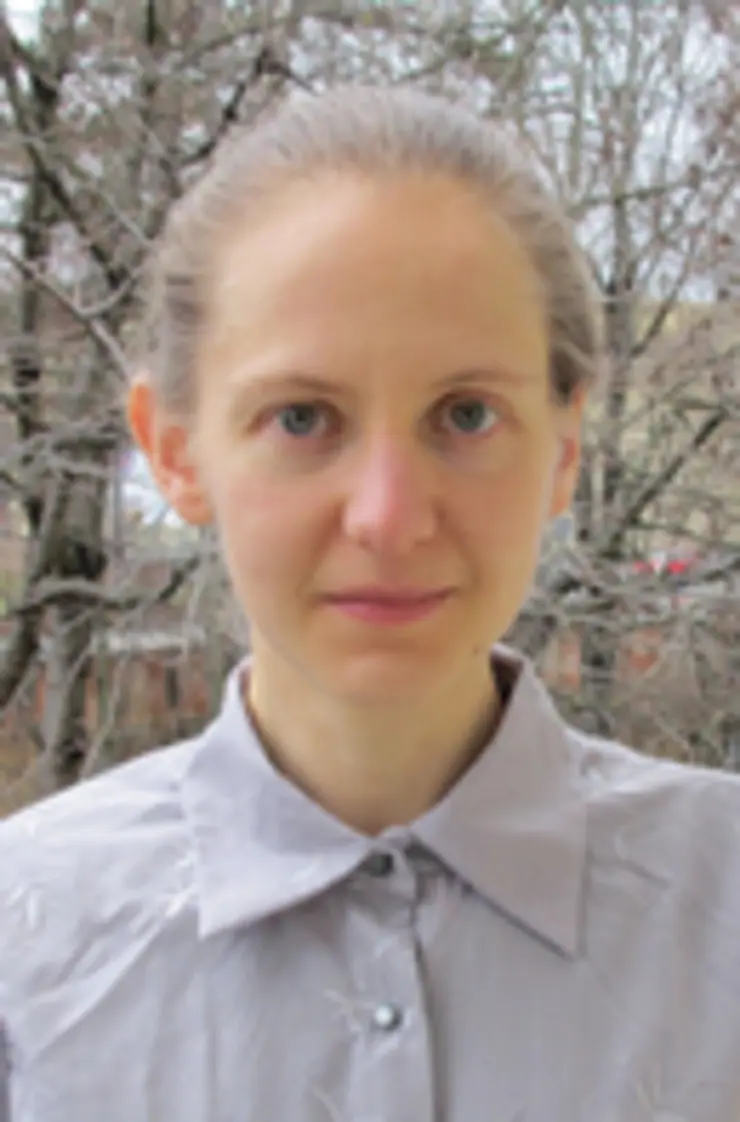Prof. Dr. Dr. Luise Frenkel

Fellow am Max-Weber-Kolleg November 2015 bis Februar 2016 und Oktober 2017 bis September 2018
- Vita
Luise Marion Frenkel is Assistant Professor in Classical Greek at DLCV-FFLCH/Universidade de São Paulo, Brazil, since 2013. In 2012-3, she held a Fapesp post-doctoral fellowship at DLCV-FFLCH/USP, after benefitting from a British Academy funded research stay at the British School at Rome in 2012, as member of a KCL project on iconography. Since 2015 she has been a Visiting Scholar at St Edmund's College, Cambridge, and has been awarded a research scholarship from Fondation Hardt (Switzerland), a Junior Fellowship at the Max-Weber Kolleg and a Visiting Fellowship at the University of Birmingham. As a Gates scholar, she received a Ph.D. in Divinity from the University of Cambridge (2007-2012) on "Theodotus of Ancyra's homilies and the Council of Ephesus (431)". She also holds a Ph.D. in Applied Mathematics from the Institute of Mathematics and Statistics, USP, Brazil (2003-2007), a B.A. in Classical Greek (2006) and a B.Sc. in Molecular Sciences (2003), both also from USP. Her research focuses on the Roman East in the fifth century A.D., and on the transmission of Greek, Syriac, Ge'ez and Latin sources. Her current projects concern narratives about consensus, imperial and religious identities, synodical and senatorial proceedings, Christological polemical works and the textual representation of Arab incursions. Other research interests are imperial and Byzantine hexametric poetry and education, and the medieval reception of classical and late-antique philosophy and theology in Greek, Syriac, Arab and Latin.
- Forschungsprojekt
The authority of consensus in Late Antiquity: narratives of popular, senatorial and synodical unanimity
The proposed research addresses the late-antique narrative resources used to present consensual and unani-mous actions in processes of institutionalisation and individualisation in religious contexts, and the changes in the interpretation of the texts during their reception and transmission. My project aims to examine their sociohistorical framework and political function, especially in processes of institutionalisations of the past and of religious or political groups. The focus falls on fifth-century Greek sources which inaugurate the redaction and compilation of proceedings and codes as known in Roman Law and Christian Conciliar Studies. The project also follows the changes in the material and social ideas about codifications and compilations. It engages with theories on Christian and Roman identities, and their development and influence. For example, the seemingly similar proceedings of Christian synods and decision-making sessions of civil institutions in the Roman Empire and their cultural and historical significance will be analysed. Expanding previous work, in part pursued in conjunction with the Kolleg-Forschergruppe “Religiöse Individualisierung in historischer Perspektive” (KFG) at the Max-Weber-Kolleg (MWK) during a three-months junior fellowship in 2015-16, the project advances the thesis that the written representations of unanimity and consensus are primarily literary creations which con-tributed tokens of authority to the discourse for which they were composed.
- Publikationen
Latest Publications
- The imperial identity of senatorial rituals in Late Antiquity. In: A. Zuiderhoek and W. Vanacker (eds.), Imperial identities in the Roman World, New York City: Routlegde, 2017, 199-218.
- Syriac Christological Dialogues and the Transmission of Theodotus of Ancyra’s Contra Nestorium: Aramaic Studies 14:2 (2016) 118-133, DOI: http://dx.doi.org/10.1163/17455227-01402004.
- The record of acclamations and cries in the Acts of Ephesus (431). In: Vinzent, M. & Brent, A. (eds) Studia Patristica. Vol. LXXIV – Including Papers presented at the Fifth British Patristics Conference, London, 3-5 September 2014. Leuven: Peeters, 2016, 303–316.
- Individual Christian voices in the narratives of late-antique acclamations: RRE 2:2 (2016) 196-226; DOI: http://dx.doi.org/10.1628/219944616X14655421286095.
- Theodotus of Ancyra’s homilies and the Council of Ephesus (431). Studia Patristica Supplements 4. Peeters, Leuven (2015).

